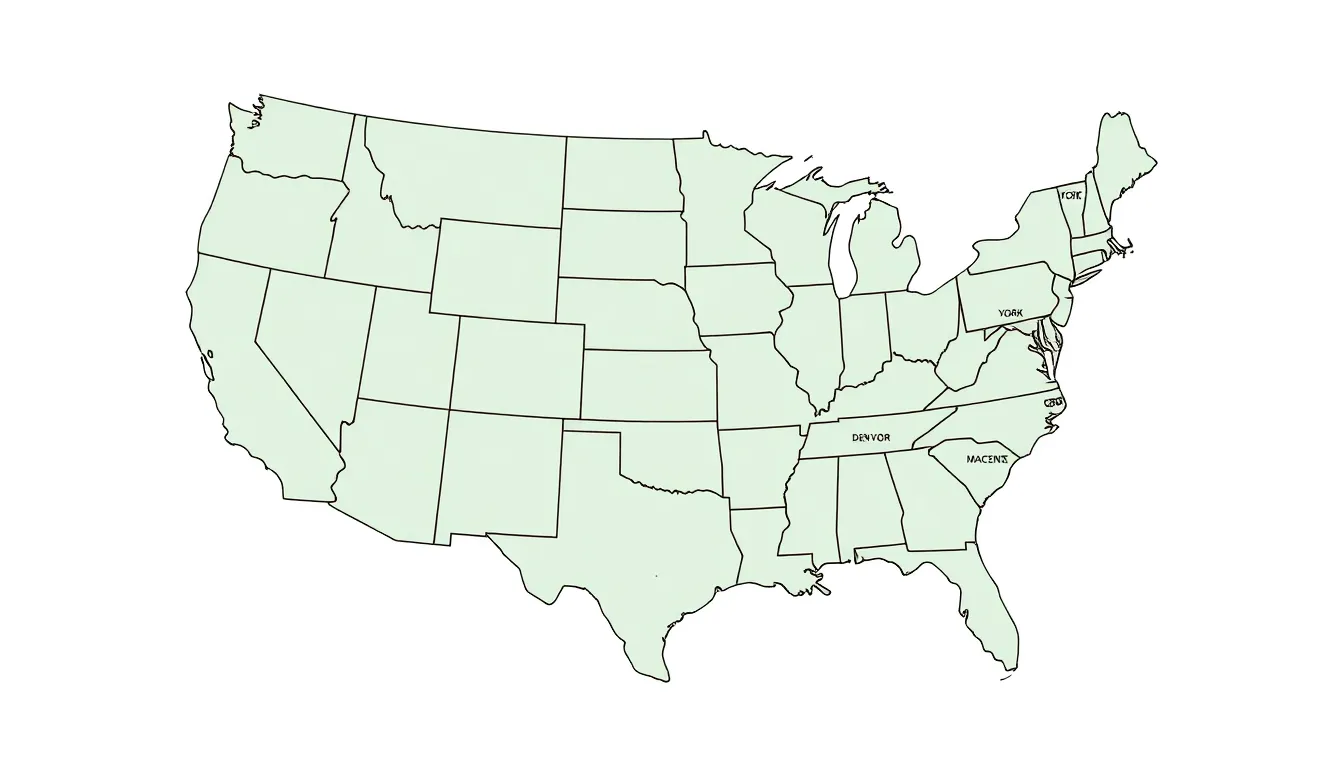Table of Contents
ToggleEver wondered what time zone Michigan’s in? Well, you’re not alone! With its unique blend of bustling cities and serene lakes, Michigan is a state that keeps you guessing—especially when it comes to time. Is it Eastern or Central? Or is it just stuck in a perpetual state of “who cares, it’s time for a pasty”?
Overview Of Time Zones
Michigan resides primarily in the Eastern Time Zone. This zone operates at UTC-5 during standard time and UTC-4 during daylight saving time. A portion of Michigan, specifically the western region, observes Central Time, which stands at UTC-6 and UTC-5 during daylight saving time. Understanding the distinction assists in avoiding scheduling conflicts.
Time changes occur in Michigan on the second Sunday of March and the first Sunday of November. Residents often adjust their clocks to align with daylight saving time, enhancing daylight during the warmer months. Local businesses and schools schedule activities based on these time changes.
Significant cities like Detroit and Grand Rapids fall firmly within the Eastern Time Zone. Meanwhile, cities such as Iron Mountain in the Upper Peninsula embrace Central Time. The state’s location illustrates the unique nature of its time zone coverage.
Confusion may arise for those traveling within Michigan. Traveling from one time zone to another can impact meeting times or event schedules. Prior knowledge of the time differences eases navigation through various regions.
The unique characteristics of Michigan’s time zones also enhance its cultural richness. Activities enjoyed across different time zones may differ, yet residents find ways to connect. Local events often synchronize with each respective time zone, allowing for unified celebrations.
Understanding Time Zones In The U.S.

The United States spans several time zones, affecting daily life and business operations. Most of the country operates under four time zones: Eastern, Central, Mountain, and Pacific.
Eastern Time Zone
Eastern Time Zone covers a significant portion of the U.S. and includes states such as New York, Florida, and, notably, Michigan. This zone operates at UTC-5 during standard time and UTC-4 during daylight saving time. Major cities like Detroit and Atlanta thrive in this zone, establishing a busy cultural and economic hub. Events and meetings often follow Eastern Time, impacting scheduling for those communicating across the nation.
Central Time Zone
Central Time Zone contributes to the diverse time landscape in the U.S. Stretching from Texas to parts of Michigan, this zone operates at UTC-6 during standard time and UTC-5 during daylight saving time. Cities like Chicago and Dallas play vital roles in commerce and culture within this framework. Understanding Central Time is crucial for coordinating activities in states straddling both the Eastern and Central zones.
Mountain Time Zone
Mountain Time Zone serves areas in the western U.S., including states such as Colorado and Montana. This time zone operates at UTC-7 during standard time and UTC-6 during daylight saving time. Communities within this zone often enjoy outdoor activities, given their proximity to nature. Events scheduled here draw participation from various time zones, creating unique coordination challenges.
Pacific Time Zone
Pacific Time Zone encompasses the westernmost regions of the U.S., including California and Washington. Operating at UTC-8 during standard time and UTC-7 during daylight saving time, it is critical for businesses engaged in international trade. Major tech hubs in cities like San Francisco influence global trends. Coordinating with other time zones can be challenging, requiring attention to scheduling details for successful interaction.
What Time Zone Is MI?
Michigan primarily operates in the Eastern Time Zone, although parts of the state, particularly in the western region, observe Central Time. This mix can create confusion, especially when scheduling events or traveling between cities. Distinct cities such as Detroit and Grand Rapids align with Eastern Time, while Iron Mountain follows Central Time. Knowing these differences helps residents and visitors synchronize their activities.
General Time Zone Information
Eastern Time Zone covers most of Michigan, sitting at UTC-5 during standard time. Meanwhile, Central Time Zone exists in the far western areas, operating at UTC-6. Michigan’s unique geography maintains this duality, fostering a diverse timekeeping landscape. Each zone influences daily life, from work schedules to local events. Clarity about time zones supports efficient planning and communication.
Daylight Saving Time Considerations
Daylight Saving Time brings additional complexity to Michigan’s time zones. Clocks spring forward on the second Sunday of March and fall back on the first Sunday of November. During Daylight Saving Time, Eastern Time shifts to UTC-4, while Central Time adjusts to UTC-5. These transitions can catch people off guard, making it essential to stay informed about time changes. Understanding these specifics helps prevent missed appointments and uncoordinated events.
Importance Of Knowing Time Zones
Understanding time zones plays a crucial role in daily life, particularly in a state like Michigan where multiple zones exist. Clarity regarding the time differences prevents scheduling conflicts, ensuring that meetings and events occur as intended. Residents benefit from this awareness to coordinate social gatherings across different cities.
Notably, Michigan spans both the Eastern and Central Time Zones. Major cities such as Detroit and Grand Rapids operate under Eastern Time, while Iron Mountain in the Upper Peninsula observes Central Time. Recognizing these distinctions helps residents navigate travel and local events efficiently.
Additionally, Daylight Saving Time impacts both time zones. Since clocks shift forward on the second Sunday of March and back on the first Sunday of November, familiarity with these changes is essential for accurate timekeeping. The Eastern Time Zone adapts to UTC-4 during Daylight Saving Time, while the Central Time Zone adjusts to UTC-5.
Visitors to Michigan also benefit from understanding the state’s time zones. Knowledge of the local time ensures smooth travel plans and reduces the chances of missing appointments. This awareness promotes effective communication when interacting with residents or scheduling activities.
Awareness of time zones supports efficient planning for businesses that operate across different areas. Businesses benefit by avoiding missed deadlines and ensuring timely responses to client needs. Accurate timekeeping fosters professionalism and builds trust with partners and customers alike.
Michigan’s time zone landscape is a blend of the Eastern and Central time zones that adds to the state’s unique charm. Understanding these distinctions is vital for both residents and visitors to navigate schedules and events seamlessly.
With major cities like Detroit firmly in the Eastern Time Zone and areas like Iron Mountain observing Central Time, it’s clear that awareness of local timekeeping can enhance experiences in this vibrant state. As Michigan continues to thrive with its rich culture and diverse communities, keeping track of time zones will ensure that everyone stays connected and engaged.




